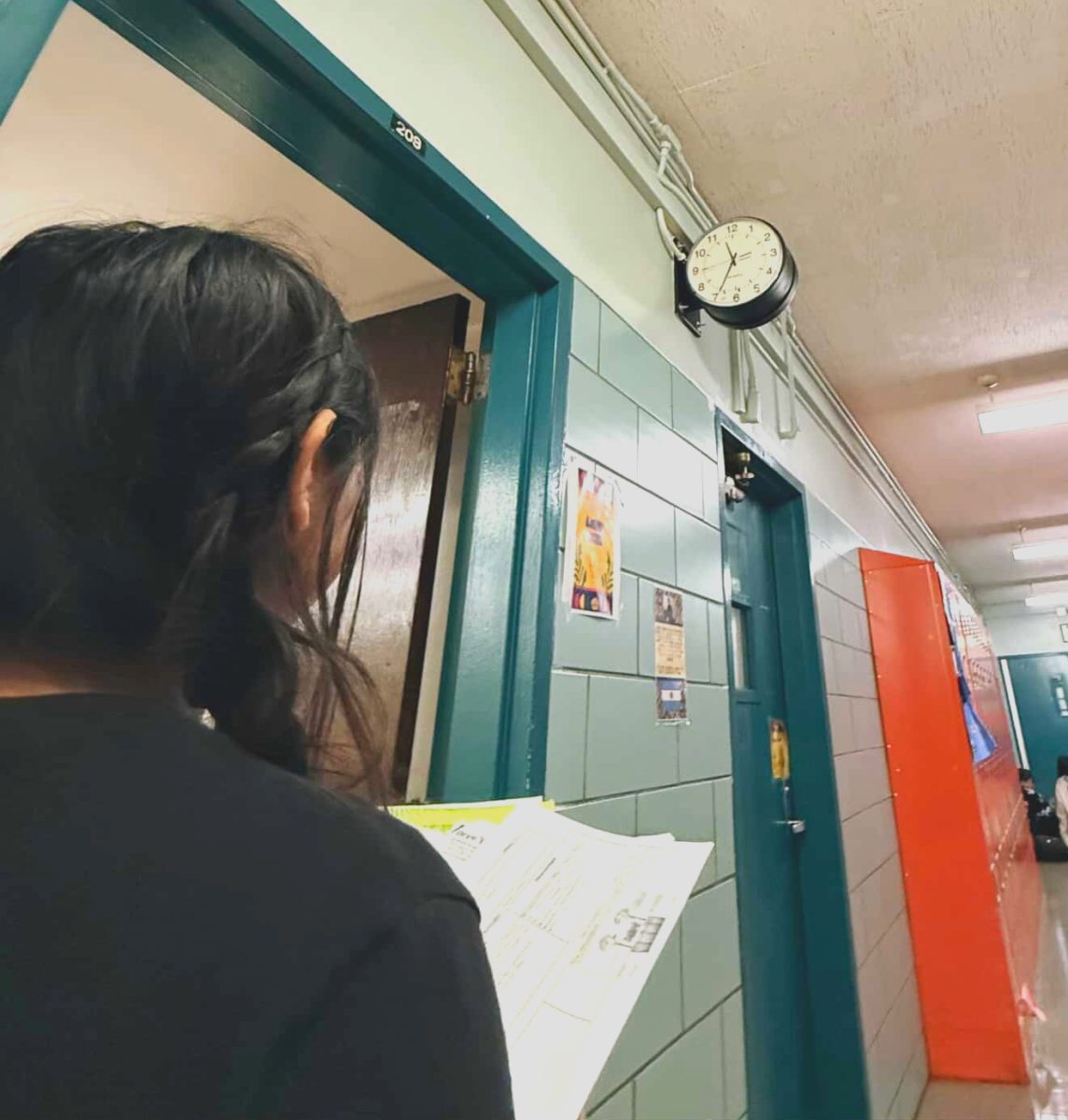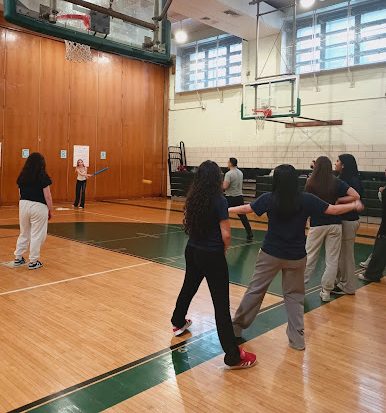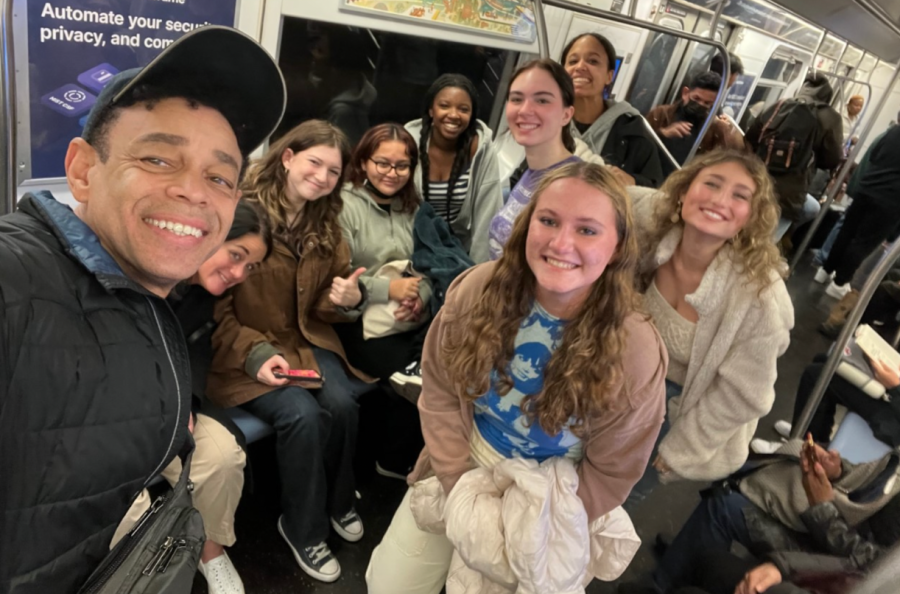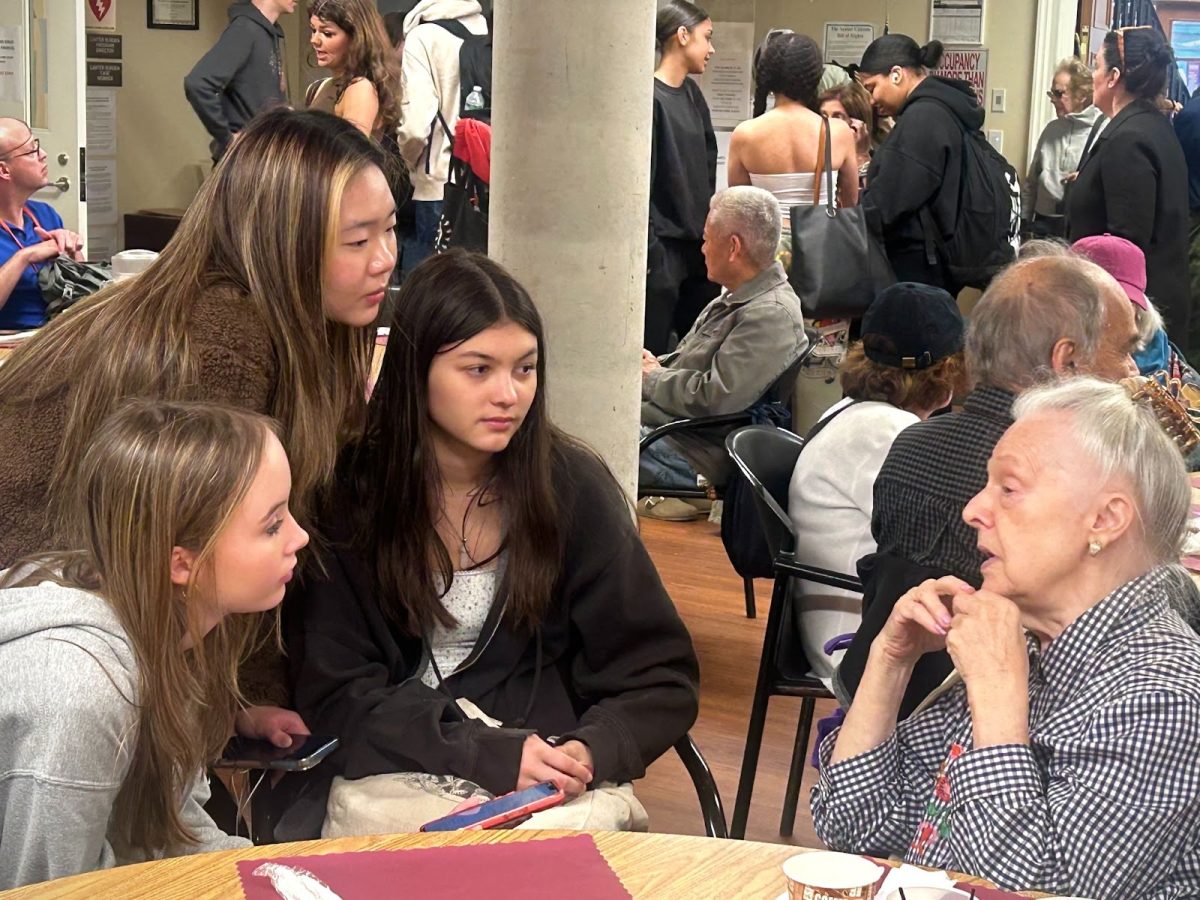Is It Time to Rethink Module Week?
Actor Lane Napper from Victorious with (from Left to Right) Ms. DeStefano, Abigail Gottesmen, Jaquelin Pillco, Caroline Nicholas, Violet Cole, Lara Moninger, Ella Veith, and Ashley Geller during the NYC Through New Eyes Module.
November 29, 2022
Module weeks are quarterly, week-long courses at NYC Museum School that provide students with an opportunity to leave behind their core classes while immersing themselves in niche studies.
While module week can be fun, some students can’t help but feel a sense of dread each time it rolls around. This is because four times a year, for a total sum of one month, our regular classes are put on hold, and any sense of continuity is virtually scrapped.
It would be a lie to say that module does not serve students well. Not only does it provide a much needed break from the confines of our school, but by inviting students onto the streets of NYC, a sense of freedom is gifted as well. Sophomore Imanol Ventura commented on the liberation of module, saying, “I feel like it’s a wonderful experience because you end up learning something new and making new friends since you’re going outside your day-to-day classes.”
Of the 20 students I surveyed across all grade levels, there was a general consensus that module class groupings have a strong correlation to student happiness and mental well-being. Perhaps the greatest benefit of module week is its ability to reunite friends who do not have classes together. Last year, I had no classes with my best friend, despite our school averaging 100 people a grade and six periods a day. Unfortunately, factoring in AP and non-AP classes, different language courses, and different sports, it’s hard to align schedules with someone. Thus, module is an opportunity to spend time with people you normally would not see.
Junior Amela Cucovic offered her perspective, explaining that “a lot of my friends that I don’t have in day to day classes I get to spend time with for a week, which I look forward to.” Cucovic elaborated on the experience of those with not many friends in module, saying that, “it can feel isolating, like you’re going through this change alone.”
Additionally, junior Ryan Bess views module week as a “disruption to learning” because returning from module makes it “hard to get back into the groove.” This perspective is most prevalent amongst students who take AP classes, as modules always seem to have an untimely appearance. As a student who spends a lot of time studying for APs, it is difficult for me to adjust and readjust to modules four times a year.
Hannah Bess, a junior who is enrolled in two AP courses, added that module week causes her stress because it is “an interruption to learning and then you’re behind in AP and regent classes. [The modules] accumulate into a month of the school year that we miss learning.”
In addition to being disruptive, students have also voiced concerns about the way modules are graded. Module weeks equate to two electives (meaning each module course weighs roughly ½ an elective). These grading systems place stress on students to accurately complete module assignments, as doing poorly on a module week assignment has a greater weight on a student’s average than doing poorly on an assignment in a core class.
Senior Oscar Frayne said, “It’s not weighted as such that you’re doing five days of classes- you’re weighted as if you’re doing a whole semester (10 months of work)…. You miss one assignment in that class … and your [grade] drops down to the floor.”
 Despite all complaints, the module we currently experience is an updated structure. Nearly six years ago, module was once a week on Wednesdays. As this presented problems from both teachers and students, module was redesigned into what it is now: a week-long course.
Despite all complaints, the module we currently experience is an updated structure. Nearly six years ago, module was once a week on Wednesdays. As this presented problems from both teachers and students, module was redesigned into what it is now: a week-long course.
Not to mention, the changes that students would like to see would be difficult to implement, as module week relies on the coordination of every teacher in the school. A possible solution would be redesigning curriculums so that class units end before module week. However, this too, would be taxing on teachers who cannot assign all unit tests on the same days, and on students who would be overwhelmed with test related stress.
There is a sentiment amongst students that the progress they would like to see can be started with open discussion surrounding module week. Fortunately, progress is something NYCMS distinctly commits itself to. Even amidst a transition between pre and post-pandemic learning and numerous principal changes, there has been great advancement in the school community (as we have seen an increase in grade-level activities, holiday festivities, and opportunities for student-teacher office hours).
Although progress is not always apparent, there is active change that is happening. While I am grateful for the unique privileges module week provides students with (such as partnering with museums, rearranging classmates, and learning beyond the classroom), I hope students and staff can get to a point of comfortably discussing the weaknesses of modules.





























Sydney Butscher • Nov 30, 2022 at 9:08 am
This is a great article! It’s really nice to know that people share my opinions on module week. It’s fun when you have friends but the grading is terrifying